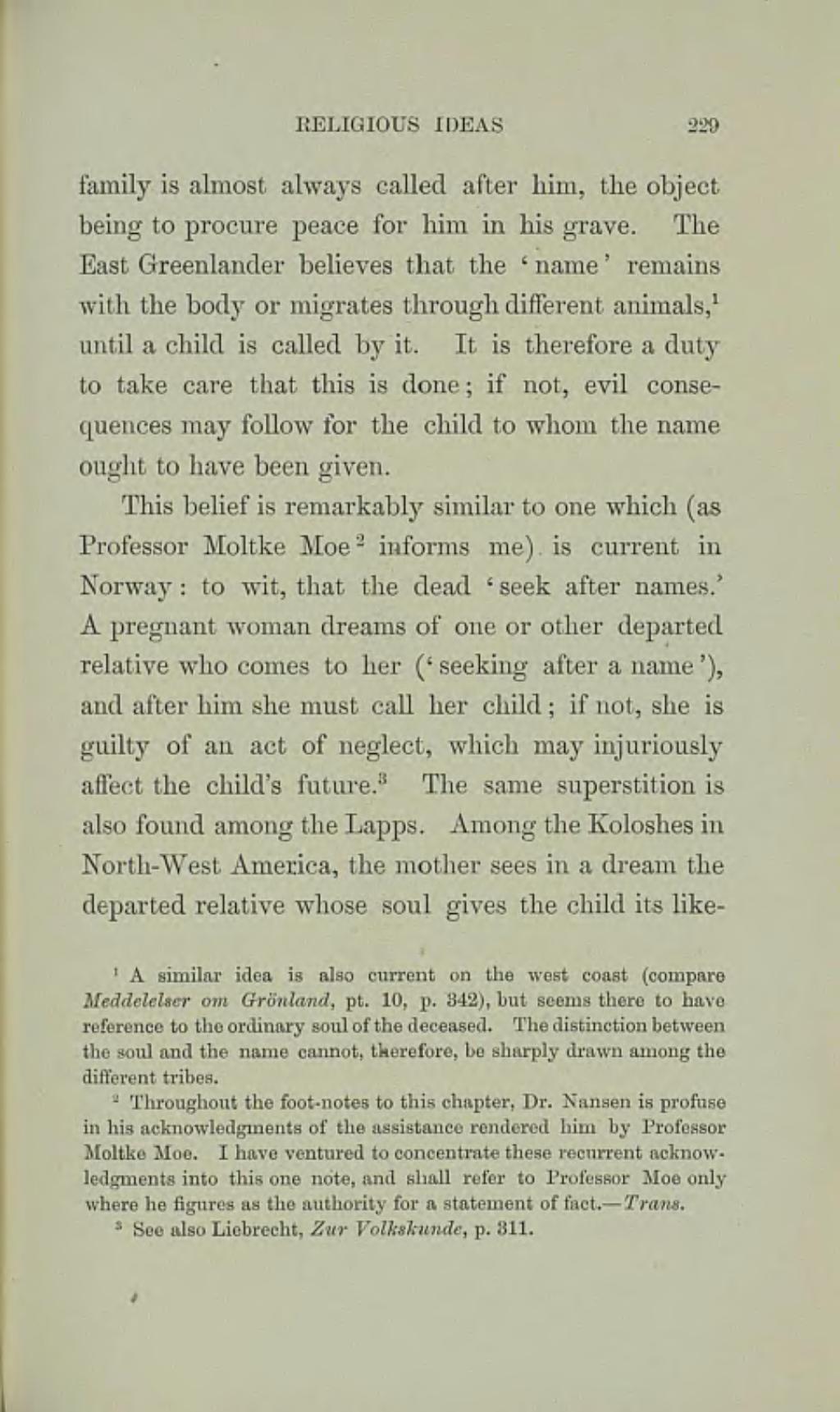family is almost always called after him, the object being to procure peace for him in his grave. The East Greenlander believes that the 'name' remains with the body or migrates through different animals,[1] until a child is called by it. It is therefore a duty to take care that this is done; if not, evil consequences may follow for the child to whom the name ought to have been given.
This belief is remarkably similar to one which (as Professor Moltke Moe[2] informs me), is current in Norway: to wit, that the dead 'seek after names.' A pregnant woman dreams of one or other departed relative who comes to her ('seeking after a name'), and after him she must call her child; if not, she is guilty of an act of neglect, which may injuriously affect the child's future.[3] The same superstition is also found among the Lapps. Among the Koloshes in North-West America, the mother sees in a dream the departed relative whose soul gives the child its like-
- ↑ A similar idea is also current on the west coast (compare Meddelelser om Grönland, pt. 10, p. 342), but seems there to have reference to the ordinary soul of the deceased. The distinction between the soul and the name cannot, therefore, be sharply drawn among the different tribes.
- ↑ Throughout the foot-notes to this chapter, Dr. Nansen is profuse in his acknowledgments of the assistance rendered him by Professor Moltke Moe. I have ventured to concentrate these recurrent acknowledgments into this one note, and shall refer to Professor Moe only where he figures as the authority for a statement of fact.—Trans.
- ↑ See also Liebrecht, Zur Volkskunde, p. 311.
